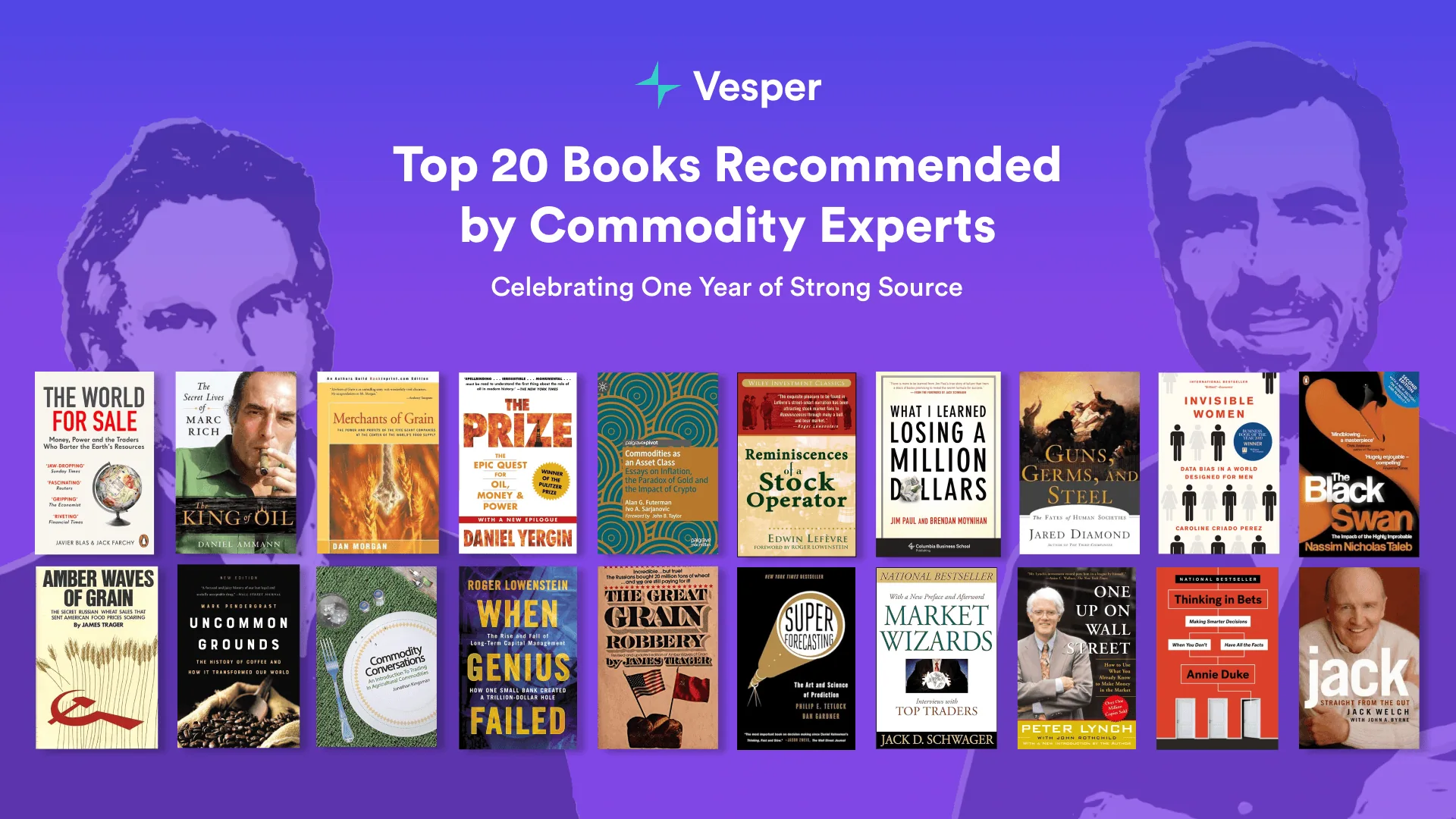At Strong Source – The Commodity Podcast, we’ve spent the past year diving deep into the complex and ever-evolving world of commodities. Powered by Vesper, the podcast brings together voices from across the industry — from seasoned traders and supply chain leaders to analysts, founders, and thought leaders. Hosted by Martijn Bron, an ex-cacao trader, and Alexander Sterk, an ex-dairy trader and founder of Vesper, the podcast blends real-life experiences with valuable insights into market dynamics.
To celebrate one year of incredible conversations and lessons, we’re sharing something our listeners consistently ask us about: What books do top commodity professionals actually recommend?
Why this article is a must-read for anyone in commodities
Whether you’re a commodity trader, analyst, procurement manager, or supply chain leader, this article is for you. Finding high-quality books on commodity markets can be difficult. Many are:
- Outdated or irrelevant in today’s rapidly evolving landscape.
- Lacking real-world application, overly focused on theory.
- Written by authors who haven’t lived through the intense pressures of market cycles.
That’s why Martijn and Alexander ask every guest on the show one key question:
“What books have truly made an impact on your thinking — and your career?”
And the answers? Far from generic.
These recommendations come from high-profile guests with decades of experience in both hard and soft commodity industries. What makes their picks so insightful is the common ground found across different sectors and roles — from coffee traders in Bolivia to oil desk heads in Geneva.
Even more special: authors of two of the recommended books — Javier Blas, co-author of The World for Sale, and Ivo Sarjanovic, co-author of Commodities as an Asset Class — were guests on our show. In Episode 14, Javier gave rare behind-the-scenes insight into the writing process, why the book needed to exist, and what other titles shaped his understanding of commodity markets. Meanwhile, in Episode 2, Ivo brought his unique perspective as a former senior trader at Cargill and current professor, explaining how his book aims to offer clarity and credibility in a landscape often clouded by financial hype.
All in all, our guests share the belief that real knowledge comes from a mix of lived experience, peer learning, and well-chosen reading. These books cover a broad range of topics — from commodity and trading-focused works, and finance, risk, and markets, to economic history, social awareness, and modern leadership.
Below, you’ll find a curated list of 20 recommended and deeply valued books — not listed in chronological or ranked order — along with insights into why they matter, as shared by the guests themselves.
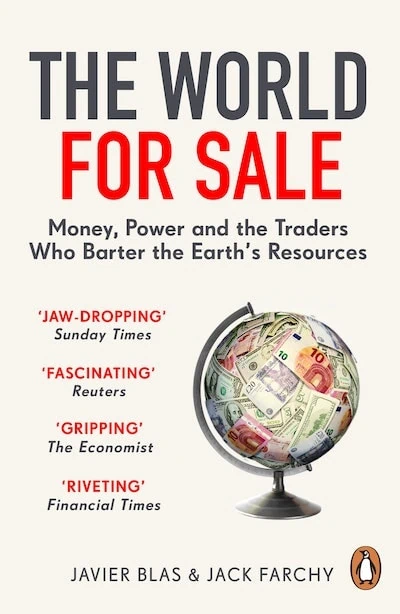
1. The World for Sale – Javier Blas & Jack Farchy
This modern classic was mentioned by several guests on Strong Source as a must-read. The book explores the secretive and powerful world of commodity trading, profiling the traders who shaped the global economy behind the scenes. It was especially meaningful to David Behrends, Managing Partner at Sucafina and one of the most respected figures in the global coffee trade. In Episode 3, David called it “an amazing read” and said it gave readers a clear sense of how high-stakes commodity trading really works.
Edwin van Stipdonk, Chief Commercial Officer at Interfood, a global dairy powerhouse, also recommended the book in Episode 12, saying, “I love it.” He appreciated how it captures both the complexity and the human side of global trade.
Perhaps most notably, one of the authors himself — Javier Blas — joined us as a guest in Episode 14. Javier, a former Financial Times and Bloomberg commodities journalist, shared his motivation for writing the book: “It kind of bothered me that an industry as important as this one didn’t have a book.” He offered an insider’s look at the writing process and emphasized, “We didn’t want to write just a technical book… we wanted to tell the human side of trading too.”
Martijn Bron, who spent 25 years trading cocoa, grains, and oilseeds at Cargill, also reflected on his experience with the book. At first, he admitted he hesitated to read it — possibly skeptical that an outsider could capture the intricacies of such a complex world. But when he finally did, he was surprised by how engaging it was. “It reads like a thriller,” he said. “I was obviously wrong to postpone reading it — it’s a fantastic book.”
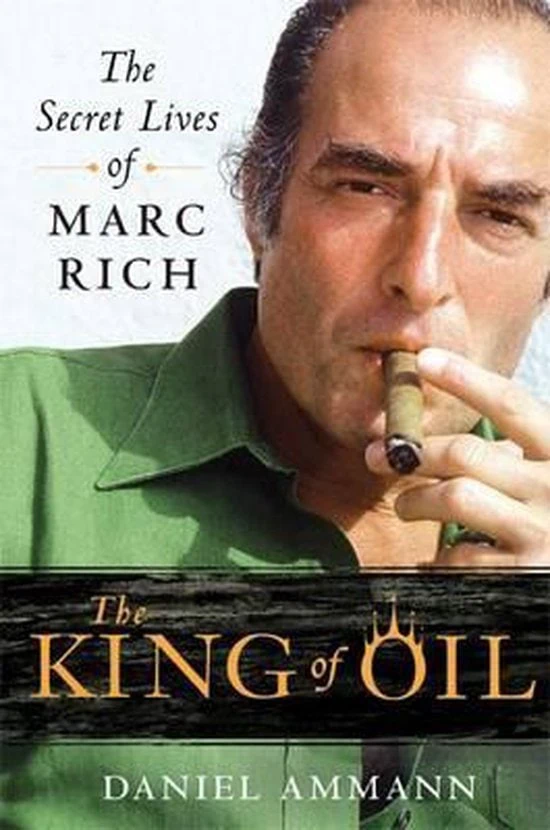
2. King of Oil – Daniel Ammann
King of Oil is a gripping biography of Marc Rich, a man who reshaped the global commodity landscape — and became one of the most controversial figures in the history of trading. The book, written by Swiss journalist Daniel Ammann, traces Rich’s journey from Holocaust survivor to founder of Glencore, the world’s largest commodity trading firm. It dives into the murky world of high-stakes oil deals, political maneuvering, sanctions-busting, and the immense risks Rich took — both legal and financial — in pursuit of global market dominance.
Edwin van Stipdonk, Chief Commercial Officer at Interfood and guest in Episode 12, recommended the book as a standout read for anyone looking to understand the mindset behind aggressive, rule-breaking entrepreneurship. With decades of experience navigating the dairy trade, Edwin appreciated the book’s raw look at ambition and risk. He described it as “a fantastic book to understand trading… the entrepreneurship, the risk… maybe on the edge, but impressive.” For readers interested in the personalities behind the markets, this biography is both provocative and instructive.
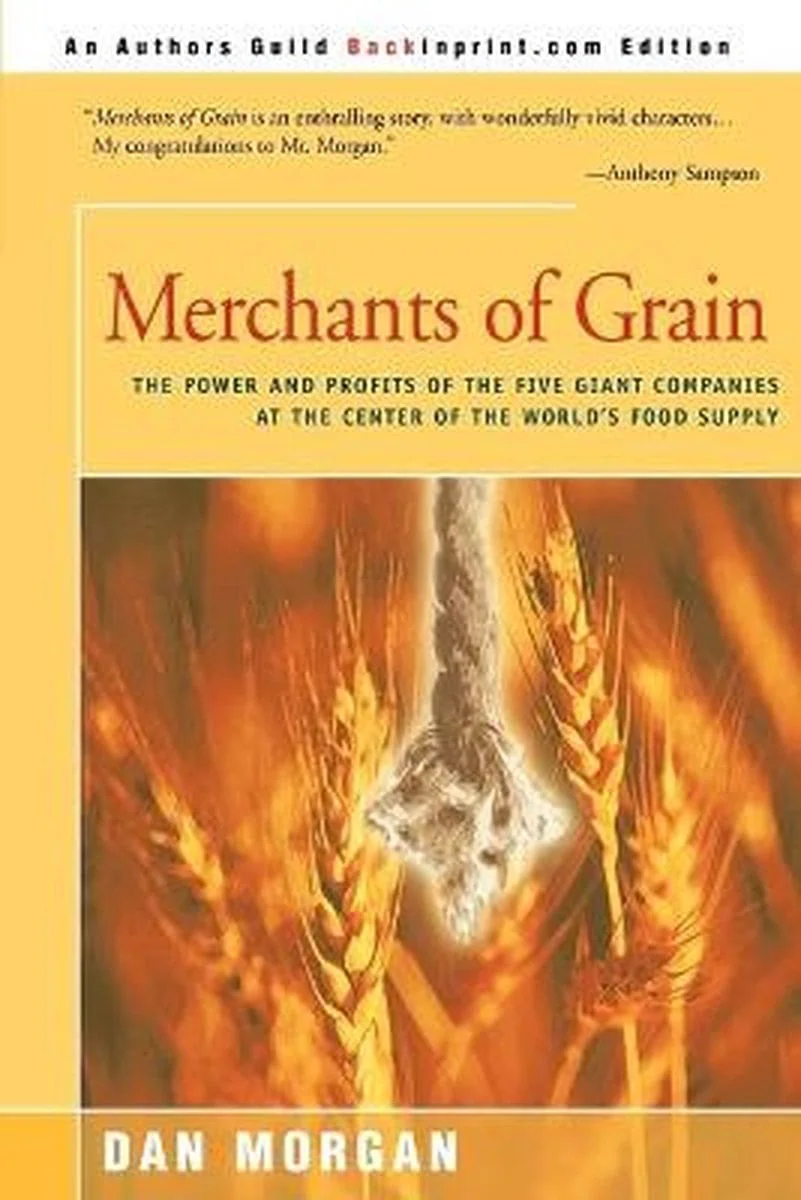
3. Merchants of Grain – Dan Morgan
Written by journalist Dan Morgan, Merchants of Grain is widely considered a cornerstone text for anyone interested in the origins and evolution of the modern agricultural trade. The book chronicles the rise of the five powerful grain trading firms — Cargill, Continental, Bunge, Louis Dreyfus, and André — and how they came to dominate global food flows throughout the 20th century. Through wars, famines, and market collapses, these firms became invisible giants, quietly shaping supply chains, policy, and economies.
In Episode 14, Javier Blas — commodities journalist and co-author of The World for Sale — called it “a classic” and “essential for grasping how companies like Cargill and Continental built their empires.” Despite being published in the 1980s, he noted that the book “remains deeply relevant” for anyone working in grains, oilseeds, or food logistics. It’s especially valuable for understanding the foundations of the opaque, complex structures that still define agricultural markets today. For those entering agri-commodities, this is essential historical grounding.
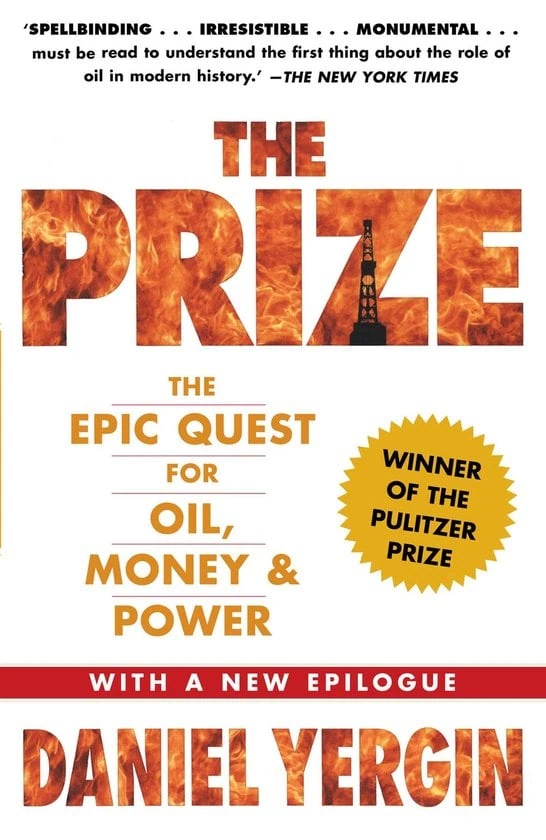
4. The Prize: The Epic Quest for Oil, Money & Power – Daniel Yergin
Javier Blas also highlighted The Prize as a must-read, especially for those interested in the oil industry. He described it as “the go-to text for understanding the energy world’s history and power dynamics.” Written by Pulitzer Prize-winning author Daniel Yergin, the book traces the global history of oil — from its early discovery in Pennsylvania to its role in world wars, the rise of OPEC, and the shaping of modern geopolitics. It’s a sweeping, meticulously researched narrative that shows how oil has influenced economies, empires, and conflict, making it essential reading for anyone in energy or commodities.
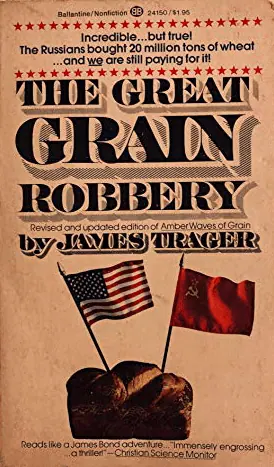
5 & 6. Amber Waves of Grain and The Great Grain Robbery – James Trager / Don Paarlberg & Joseph C. Cooper
These two lesser-known books were also recommended by Javier Blas for their unique exploration of a pivotal moment in agricultural trade history. Both titles examine the infamous 1972 U.S. grain deal with the Soviet Union — an event that exposed vulnerabilities in the global food supply system and shocked markets worldwide. Amber Waves of Grain offers a narrative take on the events and policy shifts, while The Great Grain Robbery, written by Joseph C. Cooper — one of the USDA economists directly involved — provides an insider’s analytical view. Javier admired how these books “captured a moment when commodity markets and geopolitics collided dramatically,” calling them “surprisingly under-told but highly relevant” for anyone in agri-commodities.
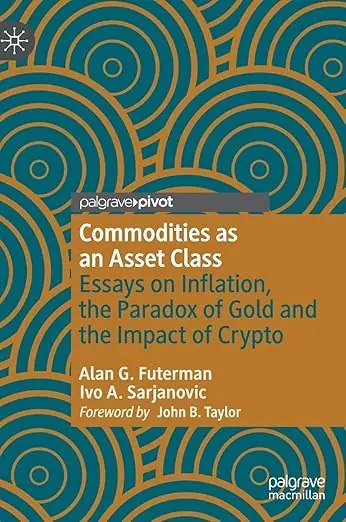
7. Commodities as an Asset Class – Ivo Sarjanovic & Alan Futerman
This book hits close to home for the Strong Source podcast, not only because Ivo Sarjanovic was a guest in Episode 2, but also because it represents the kind of grounded, experience-based knowledge that Martijn and Alexander value. Ivo, a veteran trader at Cargill and now a professor at the University of Geneva, co-wrote this book to challenge myths around commodities — particularly the idea that they are always a great hedge against inflation.
In Episode 2, Martijn Bron mentions how much this book resonated with him: “It confirmed my views so many times… I read it twice.” He also praised it as “not trying to sell anything — just credible, well-structured education from someone who’s lived it.”
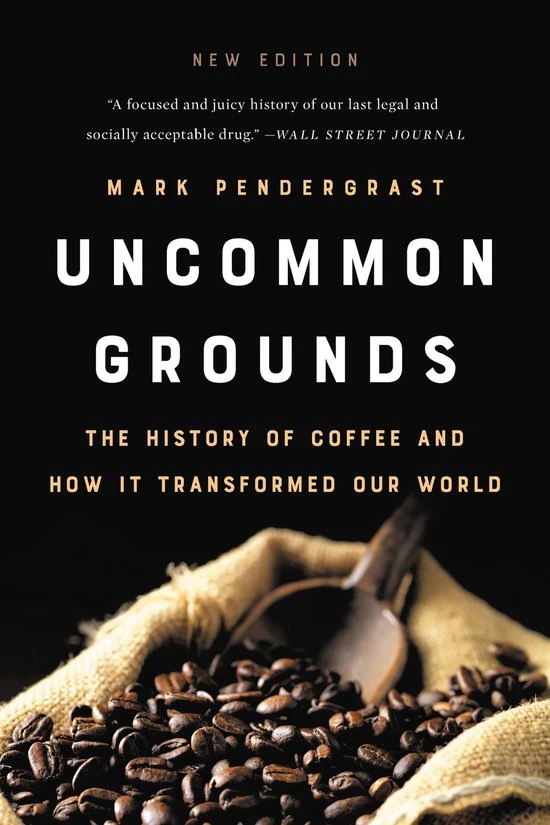
8. Uncommon Grounds – Mark Pendergrast
Coffee lovers and traders alike should dive into Uncommon Grounds, according to David Behrends, Managing Partner at Sucafina, one of the world’s leading coffee trading houses. In Episode 3, David recommended the book as an essential read for anyone interested in understanding the evolution of the coffee trade. He described it as “a great read that goes through the entire history of coffee — bankruptcies, mergers, acquisitions… If someone’s interested in coffee, this gives incredible insight.”
Written by journalist Mark Pendergrast, Uncommon Grounds traces coffee’s journey from ancient Ethiopian rituals to its rise as a global commodity. The book weaves together cultural history, economics, and politics, showing how coffee has shaped — and been shaped by — colonialism, capitalism, and modern marketing. For someone like David, who lives and breathes this market, it’s not just informative — it’s personal.
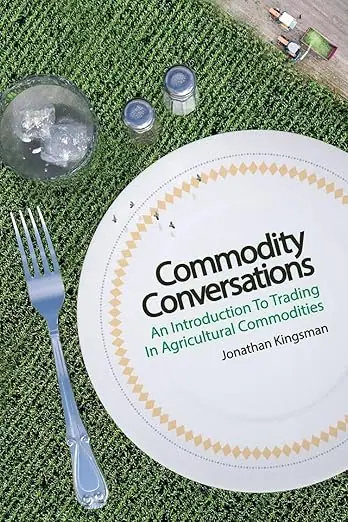
9. Commodity Conversations (Series) – Jonathan Kingsman
In addition to his other recommendations, David Behrends — Managing Partner at Sucafina — also highlighted the Commodity Conversations series by Jonathan Kingsman in Episode 3. This collection of interviews and reflections captures the voices of commodity veterans from across the industry, offering readers a rare and unfiltered look at the personalities, challenges, and turning points that define careers in trading.
David praised the series for its authenticity and accessibility, explaining his appreciation for “how personal and relatable the stories are,” and adding, “You get a glimpse into the life of the commodity trader.” For those entering the industry — or looking to reflect on it — this series feels more like a conversation with mentors than a textbook.
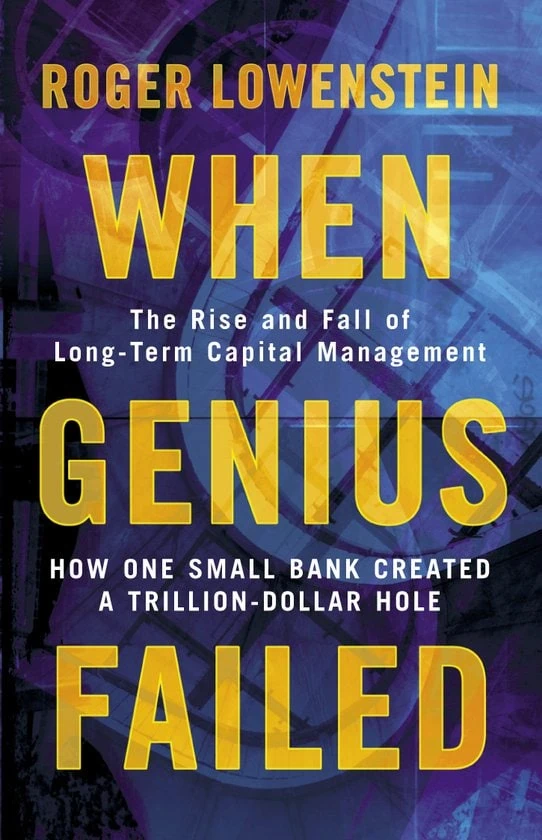
10. When Genius Failed: The Rise and Fall of Long-Term Capital Management – Roger Lowenstein
In Episode 6, Ben Tacken, former Global Head of Trading at Noble Group and now active in investment and supply chain ventures, recommended When Genius Failed as a gripping and humbling read for anyone working in finance or commodities. The book tells the dramatic story of Long-Term Capital Management (LTCM), a hedge fund founded by Wall Street elites and Nobel Prize-winning economists, which imploded spectacularly in the late 1990s.
Ben described it as “a great book about a hedge fund where everyone was a genius — Nobel Prizes — and still failed.” He pointed out that the story serves as a powerful reminder of the dangers of overconfidence, leverage, and blind trust in models. In volatile markets like commodities, where timing and judgment are everything, the downfall of LTCM is a cautionary tale. “It shows that even the smartest people can get it wrong,” he noted — making it essential reading for anyone serious about risk.
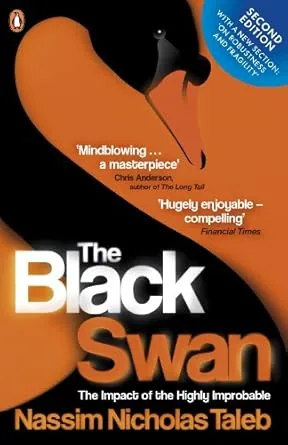
11. The Black Swan: The Impact of the Highly Improbable – Nassim Nicholas Taleb
Also recommended by Ben Tacken in Episode 6, The Black Swan was highlighted as essential reading for anyone dealing with uncertainty — especially in a world as unpredictable as commodities. In this influential work, Taleb explores how rare and unforeseen events — so-called “black swans” — can have disproportionate impacts on markets, systems, and society. His core argument: we consistently underestimate the likelihood and impact of the improbable.
Ben praised the book, saying, “It’s a brilliant book… explains risk very well — things that blow you out of the water, you will never foresee.” As a former Global Head of Trading at Noble Group, Ben connected deeply with Taleb’s message. His reflection ties into the daily reality of commodity professionals, where black swan events — from crop failures and extreme weather to geopolitical shocks and shipping disruptions — are part of the job. For Ben, the book resonated not just because of what it said about risk, but because of how it challenges the illusion of control and encourages humility in decision-making.
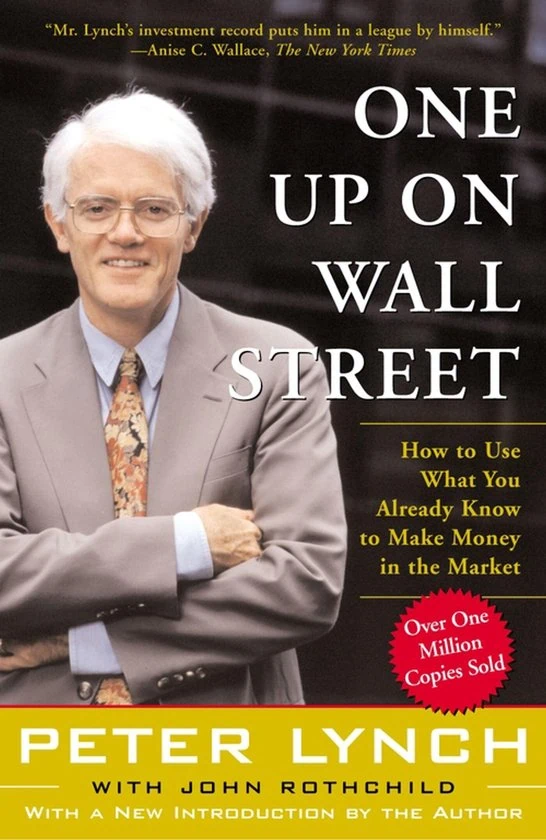
12. One Up on Wall Street – Peter Lynch
Gueststar of Episode 13, Marc Perathoner, a former commodity analyst at Bank of America Merrill Lynch who later transitioned into soft commodities trading, shared how One Up on Wall Street played a pivotal role in shaping his career. He described the book as “fantastic” and “my first exposure to markets,” crediting it as the spark that ignited his passion for investing.
Peter Lynch’s approach — encouraging readers to observe the world around them, recognize trends early, and invest in what they understand — deeply resonated with Marc. As someone who appreciates a mix of data and instinct, Marc valued how the book broke down complex investment principles into accessible, real-world strategies. Its practical tone and empowering message inspired him not only to explore financial markets but ultimately to pursue a full-time career in trading. For Marc, this wasn’t just a helpful guide — it was a turning point.
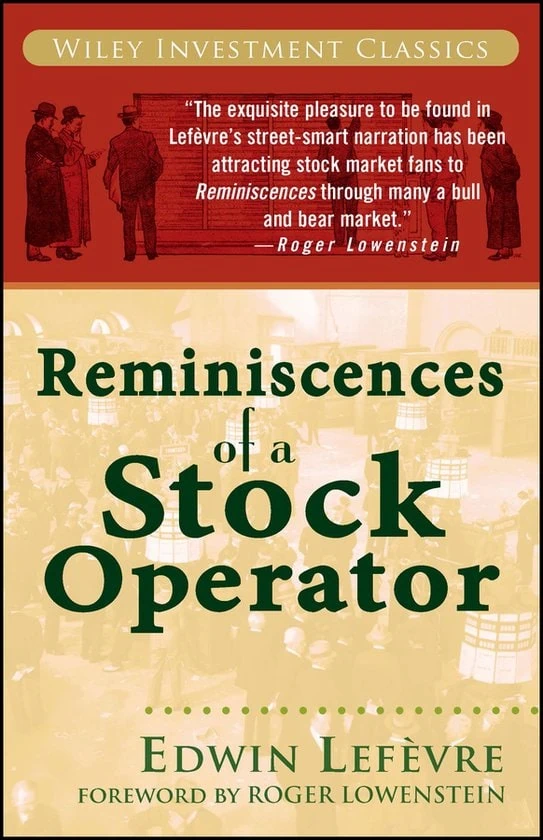
13. Reminiscences of a Stock Operator – Edwin Lefèvre
Martijn Bron names this book as “the Bible of trading” in Episode 1 — and he says it with reverence. Describing it as “an amazing book, funny too… about speculation, grifters, and psychology,” Martijn recommends it to everyone interested in trading. What makes this book timeless, he says, is how it captures the emotional and mental challenges of risk-taking. “It’s not about charts or formulas — it’s about the psychology of winning and losing.” For Martijn, this was one of the first books that helped him understand that trading is as much about mindset as it is about market structure.
First published in 1923, Reminiscences of a Stock Operator is a fictionalized biography of legendary trader Jesse Livermore, chronicling his rise, fall, and rise again in the chaotic early days of Wall Street. Though nearly a century old, the book remains a cult classic among traders for its raw portrayal of speculation, discipline, ego, and fear. Its insights into market behavior, herd mentality, and emotional control still resonate powerfully today — proving that while markets evolve, human nature does not.
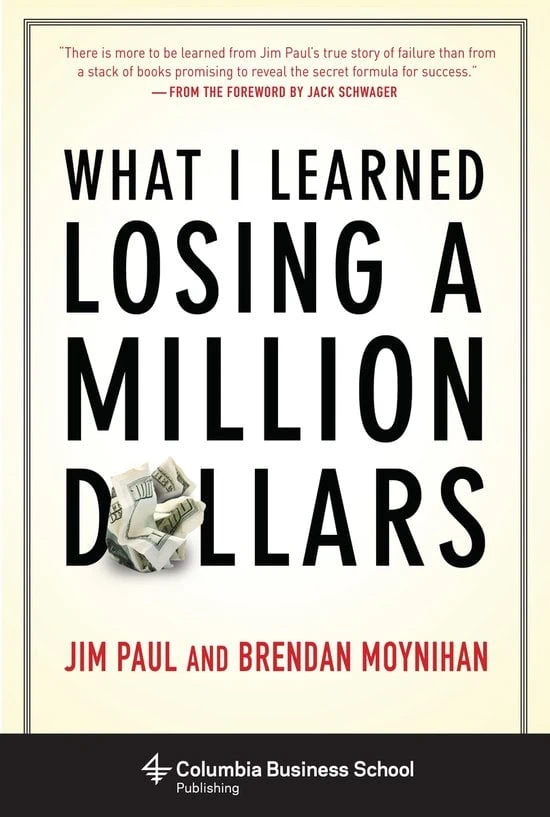
14. What I Learned Losing a Million Dollars – Jim Paul & Brendan Moynihan
Martijn Bron also tells a powerful personal story tied to this book in Episode 1. He recalls being handed a copy during a job interview with a potential trader. “It wasn’t a big book,” he says, “but when I started reading it, I thought: I should’ve read this ten years ago.” The book taught him how to separate trading from personal identity and how to process losses without letting them bleed into his personal life. He shared how, earlier in his career, a bad day in the market ruined an entire weekend trip with his family — a moment that made him realize he needed to find emotional balance. The book helped him do that. “It’s all about how to make sure trading stress doesn’t follow you home.”
Written by Jim Paul, a former futures trader who experienced a meteoric rise and devastating fall, What I Learned Losing a Million Dollars is a deeply honest reflection on how ego, denial, and poor emotional discipline can destroy even the most talented market participants. Rather than offering a “how to win” formula, the book focuses on how not to lose — unpacking the psychology behind failure and showing readers how to protect themselves from self-inflicted risk. It’s a book that resonates deeply with experienced traders because it tackles the human side of trading — the part that textbooks often ignore but that ultimately makes or breaks a career.
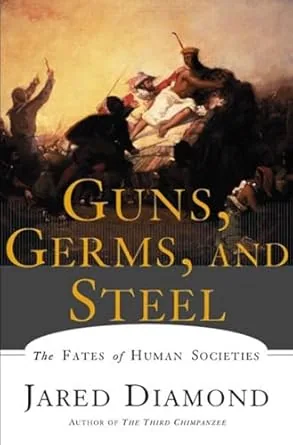
15. Guns, Germs, and Steel: The Fates of Human Societies – Jared Diamond
In Episode 15, Willem Uijen, a seasoned global supply chain leader and former EVP at Unilever, recommended Guns, Germs, and Steel as a foundational read for anyone seeking to understand the deeper forces that shape our world. He explained, “It helps me quite a bit in my thinking… understanding how the world is what it is.” With decades of experience leading multinational teams across continents, Willem shared how the book’s sweeping macro-historical perspective helped him contextualize the complexities of global trade and long-term strategic planning.
Written by geographer and historian Jared Diamond, Guns, Germs, and Steel explores why certain civilizations advanced faster than others — not due to innate intelligence or culture, but because of environmental advantages, resource access, and geographical positioning. The book delves into how agriculture, disease resistance, and technological innovation shaped the balance of global power. For leaders in commodities and supply chains, it offers a compelling framework for understanding structural inequality, historical momentum, and the origins of global economic systems — all of which continue to influence modern trade dynamics.
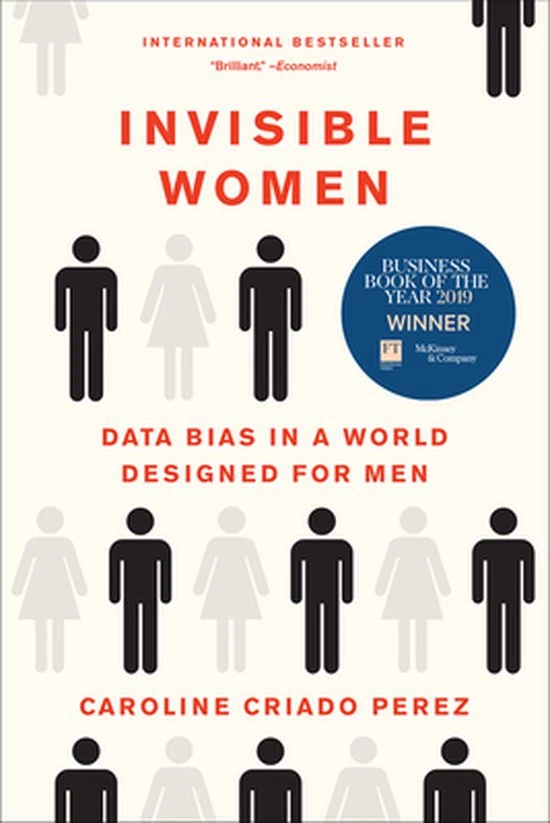
16. Invisible Women: Data Bias in a World Designed for Men – Caroline Criado Perez
In Episode 15, Willem Uijen, former EVP at Unilever and a respected global supply chain executive, recommended Invisible Women as a transformative read on inclusion and systemic bias. “It’s about how data is still very biased toward men,” he said. “It really opens your mind.” For Willem, who has led teams across Europe, Asia, and Africa, the book resonated strongly in the context of leadership and operational decision-making. He connected it directly to the world of supply chains — pointing out how data gaps and unconscious bias often lead to inefficiencies and blind spots in product design, policy, and workplace structures.
Written by activist and author Caroline Criado Perez, Invisible Women reveals how much of the world — from urban planning and medical research to workplace culture and economic policy — is unconsciously designed around male defaults. Drawing from a vast body of data and case studies, the book exposes how this gender data gap reinforces inequality and limits progress. For leaders in traditionally male-dominated industries like commodities, the book offers an urgent call to rethink assumptions, embrace inclusive thinking, and use data more responsibly.
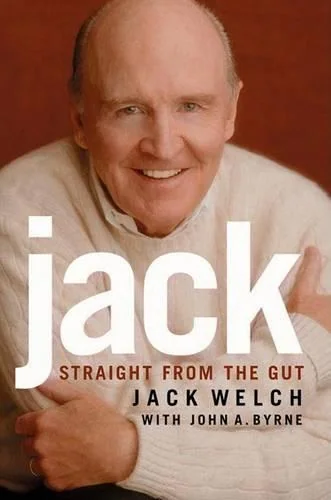
17. Jack: Straight from the Gut – Jack Welch
Also recommended by Willem Uijen in Episode 15, this candid leadership memoir from legendary General Electric CEO Jack Welch left a lasting impression on Willem’s management philosophy. “I admire Welch’s leadership style — it had a huge impact on how I manage people,” he said during his interview. For Willem, Welch’s emphasis on clarity, courage, and culture resonated deeply — especially in the operational and often complex world of global supply chains. He noted that Welch’s philosophy of empowerment and simplification became guiding principles that he carried with him throughout his international career.
Jack: Straight from the Gut chronicles Welch’s journey from humble beginnings to transforming GE into one of the most valuable and admired companies in the world. Known for his direct communication, relentless focus on performance, and no-nonsense management style, Welch shares both the triumphs and the tough calls that defined his career. For leaders navigating fast-paced, high-pressure industries like commodities, the book offers timeless insights into decision-making, organizational culture, and how to bring out the best in people — even in the most demanding environments.
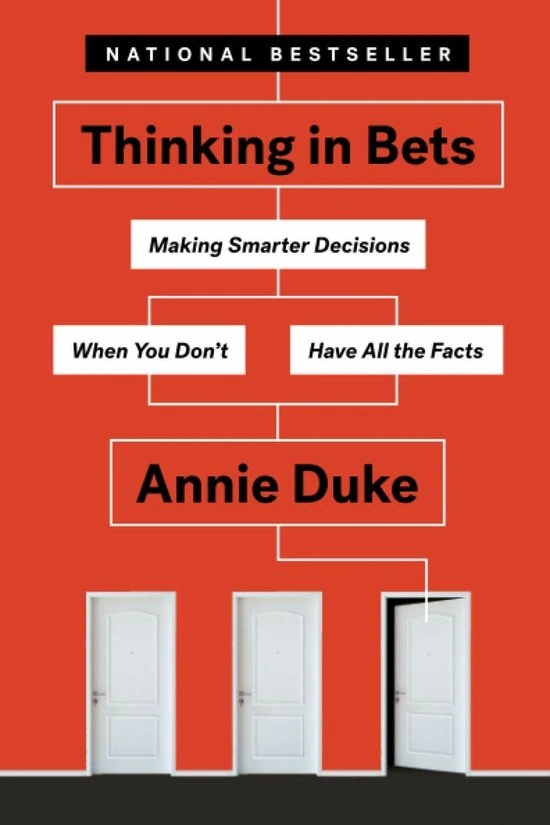
18. Thinking in Bets – Annie Duke
In Episode 7, Stéphane Bernard, a seasoned trader and portfolio manager, highlighted Thinking in Bets by Annie Duke as a major influence on his decision-making philosophy. A former professional poker player and PhD in psychology, Duke’s book is about learning to think probabilistically and separating the quality of decisions from the randomness of outcomes — a concept deeply relevant in both poker and trading.
Stéphane emphasized that the book helped him sharpen his trading framework, stating that “a bad trade is not necessarily one that loses money — it’s one where you didn’t respect your process.” He described how the book encourages traders to build structured, logical thinking while remaining humble in the face of uncertainty. For those managing portfolios, Thinking in Bets is a practical guide to improving decision quality in a world full of noise and randomness.
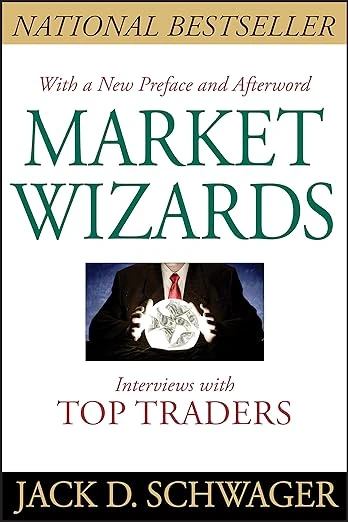
19. Market Wizards Series – Jack D. Schwager
Mentioned by Martijn Bron in Episode 11 during his conversation with Tom Kopczynski, the Market Wizards series came up as a key inspiration for understanding top-tier trading psychology and performance. Martijn explained that he often refers people to these books when they ask him what to read about trading.
The Market Wizards series is a collection of interviews with some of the most successful traders in the world — including legends like Paul Tudor Jones, Bruce Kovner, and Richard Dennis. Each chapter dives into the mindset, methods, and philosophies that made them exceptional. For anyone looking to understand not just how to trade, but how great traders think and manage risk, this series is a goldmine.
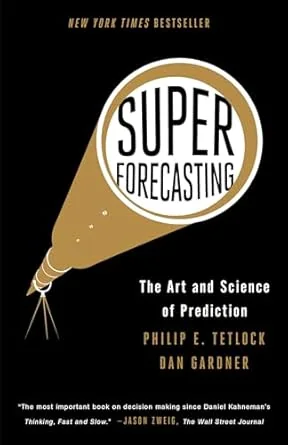
20. Superforecasting – Philip E. Tetlock & Dan Gardner
In Episode 22, Corinna Olearo, Global Director of Strategic Procurement at ICL Group and former commodity risk lead at Nestlé, recommended Superforecasting as a pivotal book that shaped her approach to market analysis and team development. “It’s a book my manager at Nestlé gave us all to read,” she explained, “because it helps you think more clearly, reduce bias, and become a better forecaster.” The book became part of the team’s toolkit for improving objectivity and structuring decision-making in volatile commodity environments.
Written by psychologist Philip E. Tetlock and journalist Dan Gardner, Superforecasting is based on decades of research into how some individuals consistently make more accurate predictions than others — even outperforming intelligence analysts and experts. Drawing from the “Good Judgment Project,” the authors uncover what sets top forecasters apart: probabilistic thinking, humility, open-mindedness, and the ability to learn from feedback. In a world where supply chains and markets are increasingly unpredictable, the book offers a practical and research-backed guide for anyone tasked with managing risk and making complex calls under uncertainty.
For Corinna, the value of Superforecasting wasn’t just academic — it became a cultural mindset in her team. It helped sharpen how they assessed global events, prices, and signals, making the book a must-read for any professional looking to elevate their strategic thinking in the commodity space.
Keep learning with Strong Source
This list of powerful book recommendations reflects just one layer of the rich, experience-driven insights that Strong Source has brought to light over the past year. These are not just books — they’re windows into how the world’s top commodity experts think, learn, and lead.
As we move into our second year, the journey continues. With every episode, we’ll keep asking the questions that matter — including what our guests are reading, what they’ve learned, and what’s shaping their view of the future.
If this article sparked your curiosity, there’s much more to explore. Tune in to Strong Source – The Commodity Podcast available on all platforms Spotify, Apple Podcasts, Amazon Music, Youtube Music, or Deezer — and join us as we continue to bring you closer to the minds behind the markets.
